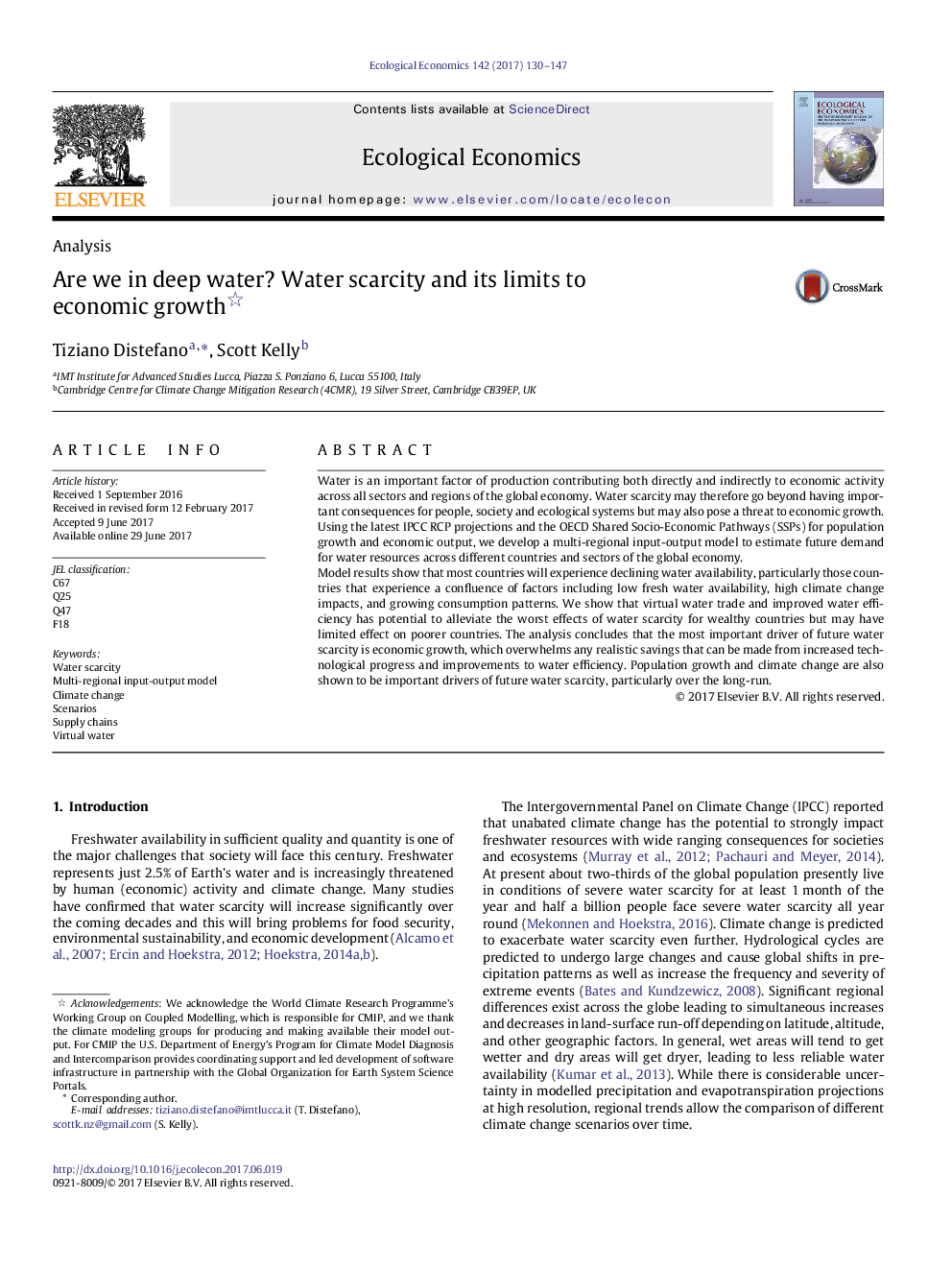| Article ID | Journal | Published Year | Pages | File Type |
|---|---|---|---|---|
| 5048541 | Ecological Economics | 2017 | 18 Pages |
Water is an important factor of production contributing both directly and indirectly to economic activity across all sectors and regions of the global economy. Water scarcity may therefore go beyond having important consequences for people, society and ecological systems but may also pose a threat to economic growth. Using the latest IPCC RCP projections and the OECD Shared Socio-Economic Pathways (SSPs) for population growth and economic output, we develop a multi-regional input-output model to estimate future demand for water resources across different countries and sectors of the global economy.Model results show that most countries will experience declining water availability, particularly those countries that experience a confluence of factors including low fresh water availability, high climate change impacts, and growing consumption patterns. We show that virtual water trade and improved water efficiency has potential to alleviate the worst effects of water scarcity for wealthy countries but may have limited effect on poorer countries. The analysis concludes that the most important driver of future water scarcity is economic growth, which overwhelms any realistic savings that can be made from increased technological progress and improvements to water efficiency. Population growth and climate change are also shown to be important drivers of future water scarcity, particularly over the long-run.
